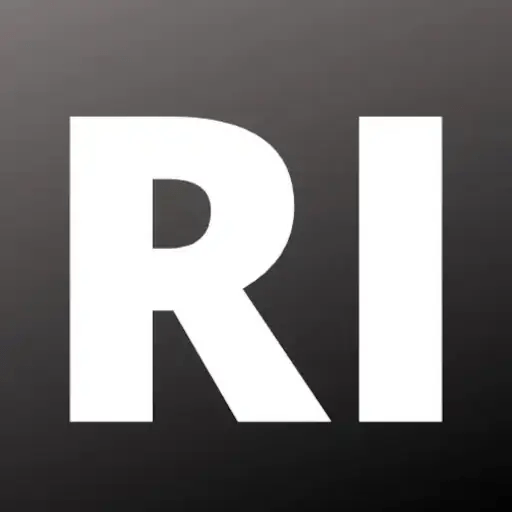Health savings accounts save tax and withdrawal is tax-free for medical expenses let’s understand how it will help you save on tax.
Medical Savings Account | Medicare Advantage MSA | Archer MSA
- Archer MSA is for self-employed and employees of small employer.
- Medicare MSA (Medicare Medical saving account) is an Archer MSA and its administration is done through Federal Medicare program. Account holder must be enrolled in Medicare and have HDHP as per the requirement of Medicare. Qualified expenses can be deposited by Medicare to your Medicare MSA.
- Archer MSA account can be opened with a bank or financial institution to save for medical expenses.
- Contributions to MSA are eligible for tax deduction. Interest earned in MSA is tax free.
- Withdrawals from MSA are tax-free for medical expenses.
- Contributions are safe in your MS Account even if you don’t use them in a year.
- Archer MSA is your account and has no employment change impact.
- Eligibility: You should have HDHP (High Deductible Health Plan) for self or family.
- Tax benefit, If you have Archer MSA and claiming tax deduction then you must not be dependent on anyone’s tax return.
- Employer makes contribution to Archer MSA, self-employer make contribution to his MSA
- Contribution Limit, Maximum yearly contribution limit is 75% of annual deductible limit of your family HDHP plan and 65% for self only HDHP plan.
- Contributions are not required every year.
- Excess contribution to MSA are considered as income.
- Excess contribution and earned interest on excess amount must be withdrawn with to avoid 6% excise tax.
- Withdrawal/distribution are not necessary every year.
- Withdrawal other than medical expenses should be included in income and may attracts additional 20% tax. Exception: No additional tax after age 65, after you are disabled or after you die.
- Even if you are not eligible for contribution you may withdraw from MSA for medical expenses.
- Menstrual care products and medicine purchased over the counter come under qualified medical expenses and it should be for your dependents.
- Insurance bills are not a medical expense for Archer MSA unless you fit in any other special rule.
- You can roll over your MSA funds to HSA once a year.
- You should choose your beneficiary as your spouse to continue the benefit of MSA else fund will turn taxable after your death. Beneficiary other than spouse can pay medical expenses of decedent within 1 year from date of death are not taxable.

Flexible Spending Arrangements | FSA
1. FSA is for reimbursement of medical expenses; these are established by the employer and can be offered as a part of the employee benefit Cafeteria plan.
2. FSA receives fund from voluntary salary reduction by employee.
3. Employer may help with their contribution.
4. No tax on contribution. Contributions are deducted from your gross income except employer contribution which is provided for long term care insurance plan is taxable and should be added to your income.
5. Reimbursement/ withdrawal done for medical expenses are tax free.
6. FSA helps you to pay medical expenses even if FSA is short of fund. (Up to your annual contribution limit)
7. FSA is not for self-employed persons.
8. Maximum yearly Contribution for year 2023 is $3,050 (for 2022 $2,850 and for 2021 $2,750), it better to project your spending and select your contribution amount.
9. Remember you lose all your money available in FSA if you don’t spend it by end of the year. However, you may get grace period for spending.
10. FSA Reimbursement/ withdrawal for health insurance plan is not allowed.
11. Menstrual care products and medicine purchased over counter comes under qualified medical expenses and it should be for your dependents.

Tax-free Medicine
Health Reimbursement Arrangements | HRA
1. Contribution to HRA is done by employer only and it is not funded by employee’s voluntary salary reduction program.
2. Employees can reimburse medical expenses tax free. (for dependents)
3. HRA is offered with other benefit plans like FSA
4. Employer contribution is not included in your gross income.
5. Unlike FSA, amount in HRA can be carried forward to next year.
6. HRA are employer provided benefit plan and can be offered in combination with other employee benefit plans.
7. HRA is not for self-employed persons.
8. There is no contribution limit for HRA.
9. Distribution/reimbursement against non-qualified medical expenses is added to your income; same applies when paying unused benefits to employee when employee quit.
10. Menstrual care products and medicine purchased over counter comes under qualified medical expenses and it should be for your dependents.
11. Qualified medical expenses for HRA are health insurance premium, amount paid for long term care coverage plan and amount which is not covered under other health plans.
12. Remaining amount in HRA is carried over to next year.
HSA | Health Savings Account | Health savings account rules 2023
- If your health insurance has a high deductible, then HSA (health saving account) can be a life-saving account for you that can be used to pay your medical bills.
- HSA allows people to pay medical expenses which are not covered by high deductible health insurance.
- Health savings account (HSA) is tax-exempt account opened with qualified HSA trustee, bank, or insurance company.
- Contribution to HSA is pretax money, contribution can be done by employee or by employer
- You can claim tax deduction on contribution you make to your HSA.
- When you pay with HSA you are saving tax.
- HSA is portable, when you switch employer, you can keep the same HAS
- Money in HSA is tax free for health expenses, there no compulsion on spending from HAS, if you don’t spend; money can continue to accumulate and grows on tax-deferred basis over the year.
- At 65 age you can withdraw money from HSA for any reason without penalty, but it will be taxed at a normal rate.
- You should choose your beneficiary as your spouse to continue benefit of HSA else fund will turn taxable after your death. Beneficiary other than spouse can pay medical expenses of decedent within 1 year from date of death are not taxable.
HSA Eligibility
- You must have a high-deductible health insurance plan (HDHP) to open HSA account. A “high deductible health plan” is defined under § 223(c)(2)(A) of IRS, a health plan which has annual deductible of not less than $1,500 for individual and $3,000 per family in 2023 ($1,400 for individual and $2,800 per family for 2022). Out of pocket maximum for individual $7,500 and for family $15,000 in 2023.
- You are only covered in HDHP, no multiple health coverage is allowed.
- You must not enrolled in Medicare
- You are not dependent on others and on other’s tax returns.
Employee employer combined HSA contribution limit | What is HSA Contribution Limit? | HSA Limit 2023
- For year 2023, individual limit is $3,850 and $7,750 for family (in 2022 for individual $3,650 and $7,300 for family)
- For year 2021, individual limit was $3,600 and $7,200 for family
- Above limit is combined limit (employee + employer)
- You can contribute for your dependent provided he/she is eligible
- Excess contribution attracts 6% excise tax and excess contribution is not tax deductible.
- You may withdraw all or partial excess contribution and earnings before filing return and avoid paying tax on it.
Health insurance section 125 | What is section 125 | Cafeteria Plan
IRS Section 125(d)(1) defines a Cafeteria plan as an employee benefit plan provided by the employer in which employee may select two or more benefits which include cash and qualified benefit.

Qualified Benefit as per Section 125(f) means any benefit which is not added to the gross income of employee.
Qualified benefits are
- Health Benefits and accident
- Assistance for adoption
- Assistance for Dependent care
- Group-term life insurance coverage
- HSA
Cafeteria benefits are for employees and their dependents
Cafeteria plan contributions are reduced from salary by employer, this pre-tax contribution is not considered as wages, which in turn reduces gross income of employee and helps reduce tax.
Use-or-Lose benefit: contribution to FSA (flexible spending arrangement)
Section 125 brings a lot of tax benefits to employer. The employer saves on FICA, FUTA, SUTA, and other taxes.
As per 2013 carry over provision unused fund up to $500 is carried over to the next year.
The cafeteria plan is not for Self-employed persons.
Popular Premium only plan (POP) is a cafeteria plan: Allows employee to pay for health insurance, employer-sponsored insurance, or individual health insurance premiums with tax free money.
Conclusion
Tax benefits on various health saving accounts are provided for health expenses which will save a lot in long run, everyone must save for their health expenses.
